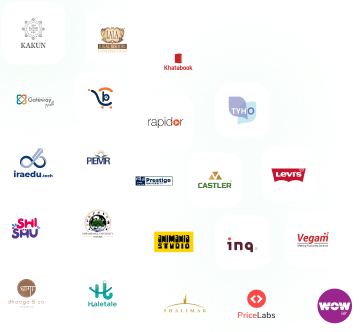Table Of Content
- Why WordPress Security Matters
- 1. Keep WordPress Core, Themes, and Plugins Updated
- 2. Use Strong, Unique Passwords + Two-Factor Authentication (2FA)
- 3. Install a Reliable WordPress Security Plugin
- 4. Limit Login Attempts & Block IPs
- 5. Regular Website Backups
- 6. Choose Secure and Well-Coded Themes
- 7. Configure File Permissions Correctly
- 8. Protect wp-config.php and .htaccess Files
- 9. Use SSL Certificates and HTTPS
- 10. Monitor User Activity and Audit Logs
- 11. Disable XML-RPC if Not Needed
- 12. Partner with a Security-Focused WordPress Agency
- Why Choose Alfyi for Secure WordPress Development?
WordPress is by far the most popular content management system (CMS) in the world, powering over 40% of websites. From personal blogs to enterprise-level websites, businesses trust WordPress for its flexibility, scalability, and ease of use.But with popularity comes attention—especially from hackers and cybercriminals.If you own or manage a WordPress site, security should be your top priority. A single vulnerability can lead to data theft, site defacement, customer loss, and damage to your brand reputation.As a leading Web Development Company, Alfyi specializes in providing secure, high-performance WordPress Website Development Services. In this article, we’ll walk you through the top WordPress security best practices you should follow—and explain how you can protect your site from evolving online threats.
Why WordPress Security Matters
Many website owners make the mistake of assuming only large businesses are targets. In reality, small websites are just as likely to be attacked—often even more so—because they’re seen as “easy targets” with weaker defenses.Risks of Poor WordPress Security:
- Website downtime
- SEO penalties from Google (blacklisting)
- Loss of user trust
- Customer data breaches
- Financial losses
1. Keep WordPress Core, Themes, and Plugins Updated
This might sound basic—but it’s critical. Outdated WordPress installations, plugins, and themes are the most common entry points for hackers.What You Should Do:
- Turn on automatic updates for minor WordPress core updates.
- Regularly check for plugin and theme updates.
- Delete any unused plugins or themes
2. Use Strong, Unique Passwords + Two-Factor Authentication (2FA)
Weak or reused passwords are like open doors for hackers. In fact, brute-force login attacks are one of the most common methods cybercriminals use.Best Practices:
- Use a combination of upper/lowercase letters, numbers, and symbols.
- Change your admin URL (from /wp-admin) to something unique.
- Implement 2FA for all user logins.
3. Install a Reliable WordPress Security Plugin
You don’t need to be a security expert to protect your site. Security plugins like Wordfence, Sucuri, and iThemes Security provide powerful protection features such as:- Firewall monitoring
- Malware scanning
- Login attempt monitoring
- Country blocking
- Real-time alerts
4. Limit Login Attempts & Block IPs
By default, WordPress allows unlimited login attempts. This makes your site vulnerable to brute-force attacks.Recommended Actions:
- Limit login attempts using a plugin like Limit Login Attempts Reloaded.
- Set up auto-lockouts after a certain number of failed attempts.
- Block suspicious IPs manually or via firewall tools.
5. Regular Website Backups
Backups won’t stop an attack, but they’re your best friend when disaster strikes. If your website gets hacked or crashes due to a plugin conflict, a recent backup lets you restore your site instantly.What to Consider:
- Use both local and cloud-based backup storage.
- Automate backups daily or weekly.
- Use tools like UpdraftPlus or BlogVault.
6. Choose Secure and Well-Coded Themes
Many site owners are tempted by free themes from unknown sources. These themes may contain malicious code or vulnerabilities that open your site to attack.Instead, opt for WordPress Custom Theme Development—it’s tailored, clean, lightweight, and secure.Alfyi offers custom themes designed with performance and security as top priorities. You get better branding, faster loading, and higher protection.7. Configure File Permissions Correctly
Improper file permissions can allow unauthorized users to read, write, or even delete critical WordPress files. This is a key reason why many sites get defaced or infected.Recommended File Permissions:
- Folders: 755
- Files: 644
- wp-config.php: 600 (for added protection)
8. Protect wp-config.php and .htaccess Files
These two files are the backbone of your WordPress website. The wp-config.php file contains sensitive database credentials and site information, while .htaccess handles server-level rules.How to Protect Them:
- Move wp-config.php one level above root.
- Restrict file access via .htaccess.
- Disable PHP execution in wp-content/uploads.
9. Use SSL Certificates and HTTPS
SSL encrypts data transferred between your user’s browser and your server. It’s a must-have for both security and SEO. Google favors HTTPS sites and warns users if your site isn’t secure.How to Implement:
- Install an SSL certificate (many hosting providers offer it for free).
- Update your WordPress settings to use HTTPS.
- Force HTTPS using plugins or server configuration.
10. Monitor User Activity and Audit Logs
If your site has multiple users (admins, editors, writers), you need to keep track of who is doing what. Suspicious activity or unauthorized changes can go unnoticed without proper monitoring.Tools to Use:
- WP Activity Log
- Simple History
- Sucuri Audit Logs
11. Disable XML-RPC if Not Needed
XML-RPC allows apps and tools to communicate with your WordPress site remotely—but it’s also a favorite entry point for hackers.If you're not using Jetpack, pingbacks, or remote publishing, disable XML-RPC.12. Partner with a Security-Focused WordPress Agency
Security isn’t a one-time task—it’s ongoing. When you Hire WordPress Developers from Alfyi, you’re getting more than code—you’re getting a long-term partner who prioritizes your business’s safety.From initial setup to custom design, plugin integration, and post-launch support, we handle everything with a security-first approach.Why Choose Alfyi for Secure WordPress Development?
We’re not just another WordPress Development Company. At Alfyi, we specialize in WordPress Website Development Services that are fast, responsive, scalable—and secure.Our Services Include:
- Secure theme & plugin setup
- Malware cleanup and protection
- Custom firewalls and login security
- Ongoing performance and uptime monitoring
- SSL and HTTPS implementation
- 100% secure WordPress Custom Theme Development
- SEO-friendly and mobile-first WordPress Website Design
Want to secure your WordPress site the right way?
Contact Alfyi Today to learn more about our WordPress Development Services, including Custom WordPress Development, security audits, and design solutions.The world’s First zero commission platform
Hire tech partners effortlessly
 If you're a non-tech founder looking for an agency or a tech founder looking for engineers.
If you're a non-tech founder looking for an agency or a tech founder looking for engineers. You can get your 5 best matches from 2800 in 5 mins, with 1000 data points tracked.
You can get your 5 best matches from 2800 in 5 mins, with 1000 data points tracked. Connect directly with no credit card needed!
Connect directly with no credit card needed!
You’re just a click away from the best talent.


